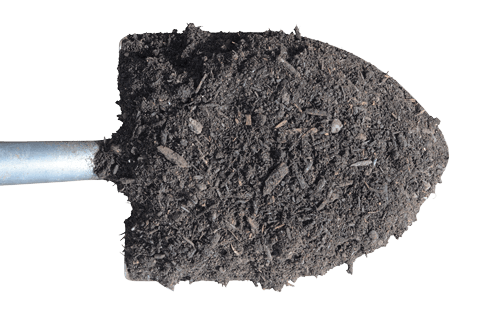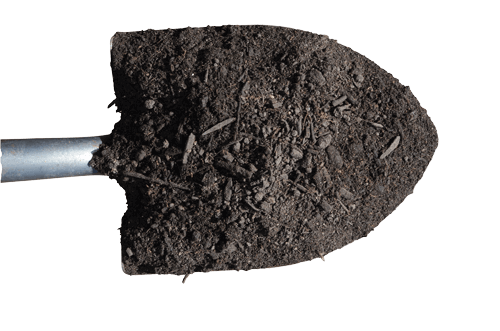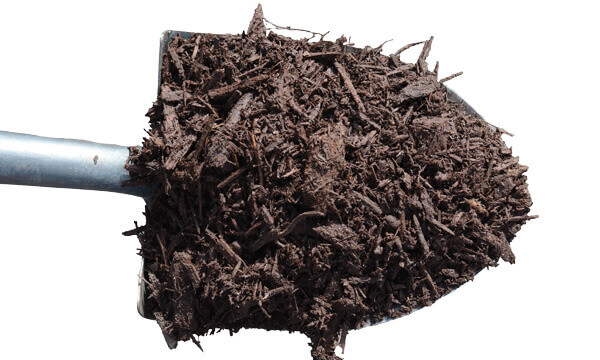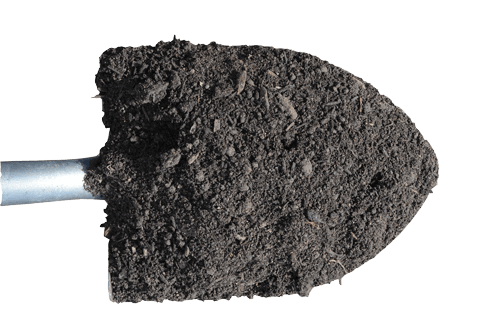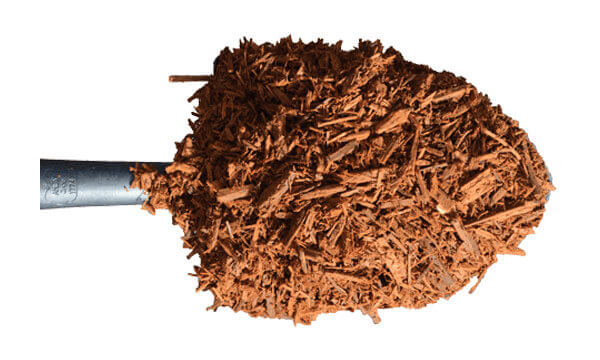The SMSC Organics Recycling Facility accepts organic material all year long. In 2017, the SMSC Organics Recycling Facility received over 137,000 tons of material—equivalent to the weight of 9,133 semitrucks!
You might be asking, where does all of this material come from? The SMSC Organics Recycling Facility takes in material from a variety of waste haulers, landscapers, municipalities, and residents every day, all year long.
Here at the SMSC Organics Recycling Facility, we accept organic material. This means that the material must be carbon-based and will voluntarily break down under the right conditions. A good rule of thumb to know if something is organic or not is: “If it has been living in our lifetime, then it is organic.” This includes things like fruits, vegetables, logs, brush, weeds, food, etc.
Types of Material Brought Into the Facility
Multiple haulers bring in food waste from nearby communities, grocery stores, restaurants, and school districts in order to sustainably dispose of their organic waste at our facility. Grocery stores often send expired foods as well as fruits and vegetables that are past their prime. We also get table scraps from school lunchrooms and restaurants. In 2017 alone, the SMSC Organics Recycling Facility took in over 11,000 tons of food waste material!
Yard waste generally comes from residents that are cleaning up their yards or landscapers that have extra material from a job they’re working on. Multiple tree service companies use the SMSC Organics Recycling Facility to drop off logs, brush, and wood chips. We have an abundance of wood on-site which helps ensure that there is always enough carbon material for our compost recipes.
Additionally, we manage 16 municipal wood sites in nearby cities. All material is ground up at the grinding site, which allows us to transfer more wood at a time. Once the grinding is complete, the wood material is then transported to the SMSC Organics Recycling Facility via semitrailer.
In the spring and summertime, we take in a large amount of horse bedding and manure from Canterbury Park. Canterbury Park is located just down the road from the SMSC Organics Recycling Facility, so it’s convenient for them to bring in material, and we welcome it! During the racing season, Canterbury Park sends multiple garbage trucks per day to the SMSC Organics Recycling Facility with material from their horse stalls. The horses staying at Canterbury Park get their bedding changed frequently to keep them clean and healthy for racing. Since the stalls are cleaned often, the material we receive has very little manure in it and is mostly bedding. This is beneficial for us because the manure doesn’t have much odor when it’s so diluted.
Our facility also takes in a few pre-consumer products. We take all of the waste cucumbers from the Gedney Pickle factory in Chaska, Minnesota. Since it arrives at our facility straight from the factory, it has very little contamination which makes it a great feedstock for composting. Post-consumer food waste often has a type of plastic contamination, such as wrappers or packaging, which is not ideal for the composting process.
We also take all of the waste cheese from Bongards Creameries. The cheese usually arrives in 15-20 tons at a time, and in the form of giant blocks. This waste comes from cleaning out the machines, as well as material that may have fallen on the floor during processing. Additionally, we take in deer carcasses from Von Hanson’s Meats after hunting season, and carved pumpkins from the public after Halloween.
Unacceptable Materials
Unfortunately, many people don’t realize that we only take organic material. We often find ourselves turning people away that try to bring us rocks, mattresses, TVs, and plastic, among other things. Since these materials aren’t organic, they don’t break down in the composting process, and would result in contamination to our final product. All loads are checked for inorganic materials, and will be reloaded if found. At the SMSC Organics Recycling Facility, we try to continually educate our customers on which materials are compostable and which are not.
The SMSC Organics Recycling Facility has dramatically increased the amount of organic material brought in to the facility since opening in 2011. Due to being very close to maximum capacity currently, we are more selective in the types of organic material we accept. We hope to increase our capacity in the future to allow even more waste material to be recycled into useful products for our customers.

